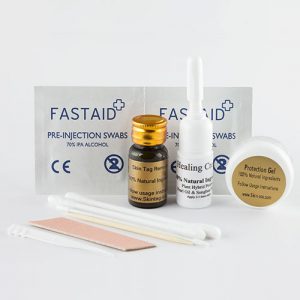Identifying Skin Tags
You woke up one morning and saw some suspiciously looking wart-like bumps under your arm and you begin to freak out because the first thing that your mind is telling you is that you have skin cancer. If not cancer, there must be something dreadfully wrong with you. You know what freckles, liver and age spots look like and this does not resemble any of them. Then what is it? Sounds like a trip to the doctor’s office.
Diagnosis for skin tags is done by a trained professional such as a dermatologist or a physician. Having your skin tags confirmed by a dermatologist does not mean it is something serious. It’s just that you may have been thinking it is something else. Also, you want to be certain that they look the way skin tags are supposed to look.
Skin tags are hanging pieces of skin on the body that is sometimes referred to as stalks or peduncles. They can appear one by one, but they may also occur in clusters. A person may have from 50-100. It measures from of 2mm up to 5cm. They are sometimes barely noticeable or can be quite obvious, depending on their location. They seem to develop in the regions of the body where there are folds of skin which are rubbing against each other, or against clothing.
Another way of identifying if you have skin tags is, if you have diabetes or you are overweight. Apart from being over the age of 40, these are common causes. Some women have been known to get them because of weight gain after pregnancy. Diabetics may get them because of their resistance to insulin. On the other hand, your skin tags could be a sign of insulin resistance, which may mean there are more serious medical conditions such as pre-diabetes at play. They are sometimes described as a type of tumor that is not malignant in nature. Nevertheless, if you notice a change in the color, size or the speed at which your skin tags grow, you may need to get a screening in which a biopsy will be performed to rule out the obvious; cancer.
If constant rubbing causes irritations and it hemorrhages, you should visit the dermatologist who may administer a local anaesthetic to remove it. This is considered a minor surgery.
Skin tags are not a chronic illness and many persons experience life and not have any need for concerns with them.
Recent Skin Tags Articles:
Facts About Skin Tags
Alternative Medicine For Skin Tags

